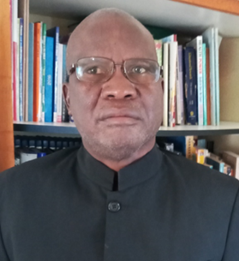Prof Makala Lilemba
With globalisation, the world is to wrestle with the impact of information explosion. This ignites debates among academicians and researchers in discerning credible researched information.
This is health in the world of academia as it hinges on creating and exchanging new knowledge. In short, research means a systematic study and investigation in some field of knowledge, undertaken to establish facts. Scholars and educators alike engage in research that can be conducted in many settings like laboratories, classrooms, libraries, societies and even on the street. Research is conducted with the hope and assumption that its results will yield and provide a better understanding of the situation and eventually lead to the improvement or solution of the problems affecting society. Societies are governed by many norms, traditions and superstitions of which rapid social and technological changes question some. Research is therefore needed to discover the truth about these beliefs so that progressive ideas are applied and implemented. The researcher can use documents like memoranda, law reports, minutes, regulations, circulars, written directives, policies and others. Researchers spend time visiting libraries, archives and other places where such documents are stored and kept for safekeeping.
Another method researchers may use is ethnohistory which is the study of ethnographic cultures and indigenous customs by examining historical records. Ethnohistory uses both historical and ethnographic data as its foundation. Its historical methods and materials go beyond the standard use of books and manuscripts. Research practitioners recognize the utility of maps, music, paintings, photography, folklore, oral tradition, ecology, site exploration, archaeological materials, museum collections, enduring customs, language, and place names. Of particular interest in ethnohistory are those analyses and interpretations that seek to make evident the experience, organisation and identities of indigenous and minority peoples. In any formal research in the social sciences, some of the following captions are recommended:
Introduction gives a brief description of the study, the research problem, the research questions, the hypothesis, the objectives, the rationale, delimitation, limitation, definition of terms and the explanation of acronyms.
Literature review indicates the literature accessed in an organised and structured manner. This reviews what other researchers have left out on the topic under investigation. The left out information should be presented in an academic and professional manner. If the facts have been overlooked, that should be regarded as a gap in literature, which other scholars should explore.
Research design and methodology describe the context in which data was collected, the population, the sampling techniques and the criteria used to determine the sample size.
Presentation and discussion discuss the findings, including the processes, analysis and interpretation of the data in figures, tables and other forms of data display.
Conclusions and recommendations summarise and discuss the important points. Drawing the findings and the literature reviewed. In addition, there should be a consideration of ethics in the research presentation.
Researchers always appeal to fellow scholars to employ more methods as research has flaws. Mainga (1973:xii) states that oral evidence is also constantly in need of re-evaluation in the light of written material and the ever-changing forces which affect the general environment within which it is contained and transmitted. In addition, documented African history has a Eurocentric flavour, and equally pose some shortcomings.
Decolonizing the research process
African history and its indigenous philosophy is still not documented and therefore cannot be on par with Western research in terms of terminology, methods of research and readership. It has then been maintained that it is difficult to research African historical information, as it cannot be referenced. Nevertheless, Chilisa (2012) maintains that although Euro-Western indigenous knowledge is different from the formerly and historically colonized and oppressed Africans, ways should be found to document this information.
The researcher should employ oral tradition such as stories, folklore, proverbs, songs, poetry, drama, wise sayings and praises that form the pattern through which events and occurrences are preserved and passed on from one generation to the other. It is in line with what Alagoa (2005) maintains that oral tradition is a viable source and a history in its own right, and recognises the fact that the custodians of the traditions are both informants and historians
African sages keep on researching for wisdom, in trying to come to terms with life without having written books. This is in line with what Alagoa (2005) refers to, when he says, ‘more days, more wisdom,’ and ‘what an old man sees seated, and a youth sees it standing.’ The sages have been using a simple method of researching and disseminating information and expertise to their young ones through oral tradition from times immemorial to date. This method has proved to be a powerful tool in traditional education as most of their wise sayings are still used in educative discourses, like the Sifwe idiomatic expression, “chiba sheba bantuli bachi bwene”, when the squirrels are jumping from one branch to another and making noise at the same time, they surely see the danger. It is a warning sign that one should be on the lookout. In the traditional African society the profound sayings of the elders, are researched words that are witty and pregnant with meanings. Such researched words are filled with wisdom and find expression in proverbs, idiomatic expressions, riddles, incantations, or in oracular and witty sayings. Following both formal research procedures and oral traditional mode can render researched papers credible.



